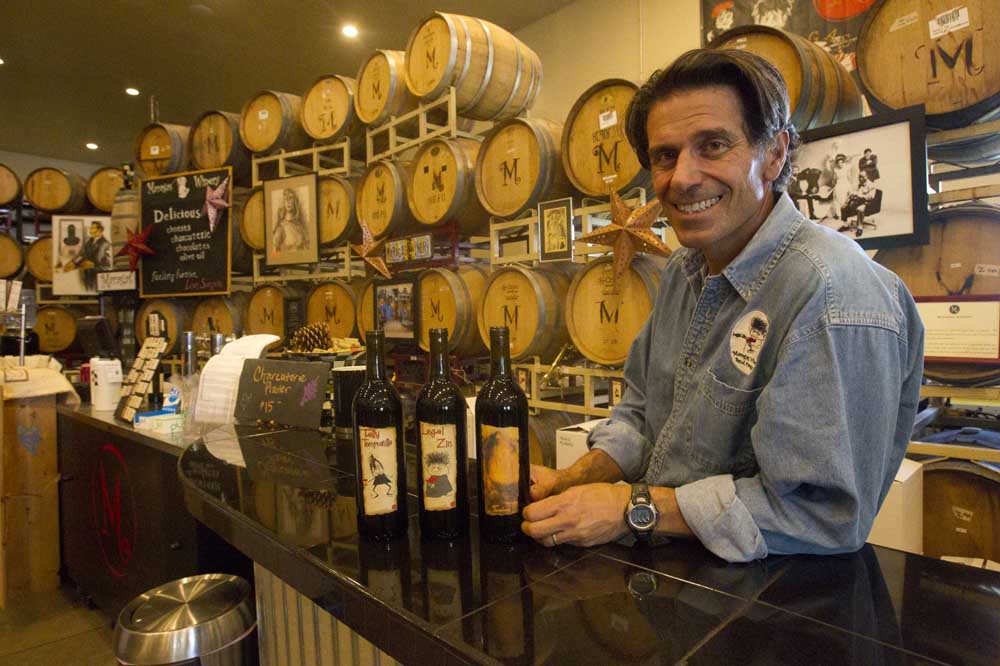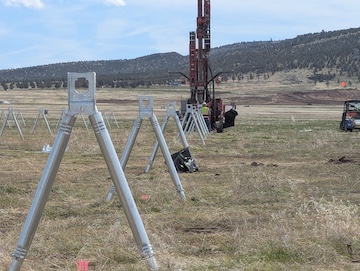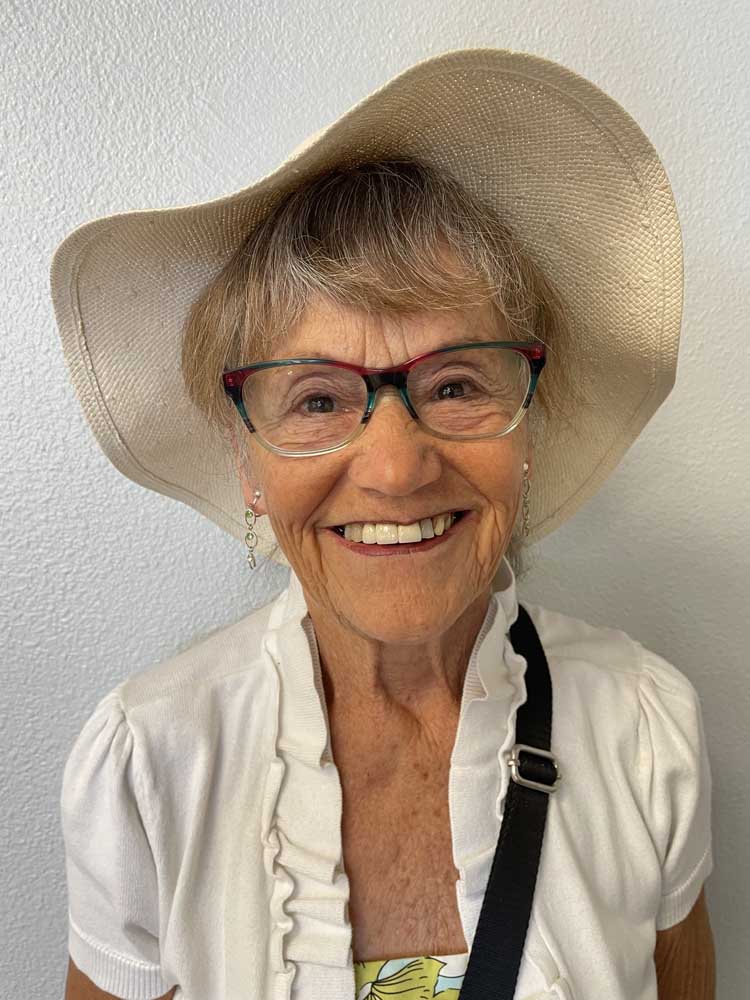Vertrees: Maragas vintner has wine in the blood
Published 3:30 am Tuesday, April 4, 2023

- FILE- Doug Maragas displays some of his wine at Maragas Winery in Culver in 2015.
Doug Maragas doesn’t have wine throughout his veins and arteries, but he lives and breathes wine and winemaking in the old-world tradition of his forbearers.
Central Oregon’s first winery producing wines from vitas vinifera is located just a mile north of the High Bridge on Highway 97 near Terrebonne. Maragas Winery proves one doesn’t have to rely on cold-weather, hybrid grapes to succeed here.
Doug and Gina Maragas began their Oregon wine adventure east of Bend in 1999 with grapes purchased from well-established vineyards in Washington, Oregon and California.
Doug was born in Ohio into a wine-making family whose vinifera is still vibrant on the Greek island of Crete. His grandmother, Anna Maragas, immigrated from Greece in 1941 and established a grape and wine brokerage which she continued for decades. She was the mentor who sparked Doug’s interest in the family tradition.
Doug and Gina met while he was practicing law and she was a prosecutor. They discovered Central Oregon while visiting a friend and heeded the advice of another friend to establish a winery where they would like to live.
As incongruous as it may sound, because this was an underdeveloped wine region, it was much more affordable than other desirable wine locations such as Sonoma and Napa counties of California.
With advice from viticulture experts at Oregon State University and the University of California at Davis, in 2006 they planted 50 grape varieties and clones to find out what would work best on their new property. By 2009 they were harvesting their own grapes, bottling in their own facility, and winning awards in the San Francisco Chronicle wine competition. The first vintage was comprised of chardonnay, pinot gris and sauvignon blanc, all whites which require less barrel aging.
They have subsequently established a vineyard near Warm Springs where warmer weather is more conducive to zinfandel, merlot, cabernet franc and cabernet sauvignon.
“The volcanic soils, abundant sun, dry summers and excellent water drainage allow our vines to thrive,” Doug said. “Our job is to keep the soil in a balanced and healthy state by farming organically and sustainably. We control predators with farm dogs and we are developing a method of controlling insects with chickens — and those are the reasons why we don’t allow visitors to have pets at our winery.”
Maragas Winery produces about 2,000 cases a year. Because it ages everything longer than most wineries, those full barrels take up more room in the tasting room.
“Our wines will always be more flavorful and complex,” Doug said, reflecting on his Greek family, “People I know in Greece live long lives because they drink wine. They are an inspiration to me. Wine is just part of your food, it’s part of your life. It’s not the same as other alcohol.”
What is his favorite wine?
“Whatever goes best with the food I’m eating,” he said. “I prefer red wines, but any variety can be magical if paired properly.”
The largest portion of Maragas’ wine sales goes to drop-in visitors to the tasting room, a big red building topped with solar collectors easily visible for miles along Highway 97. Wine club members who receive four-bottle allotments three times a year make up the secondary segment. Retail sales to a few liquor stores and eateries make up the balance.
Doug and Gina have balanced their responsibilities at the winery. Doug concentrates on the grapes and viticulture while Gina does the books and runs the tasting room. Both try to be involved in their daughter’s activities. Samantha is a junior at Redmond Proficiency Academy where she excels in the arts.
Doug continues to practice law, specializing in business litigation, looking out for constitutional rights against government intrusion.
“Wine production is hardcore farming and agricultural labor is more expensive than machines,” Doug said. “But it’s worth it to be authentic and natural, organic and sustainable, based on healthy aspects of life. The better you farm, the better the wine.”
And the picturesque, pastoral setting they maintain — among the natural beauty from Smith Rock to Mt. Jefferson — help keep things in perspective.





